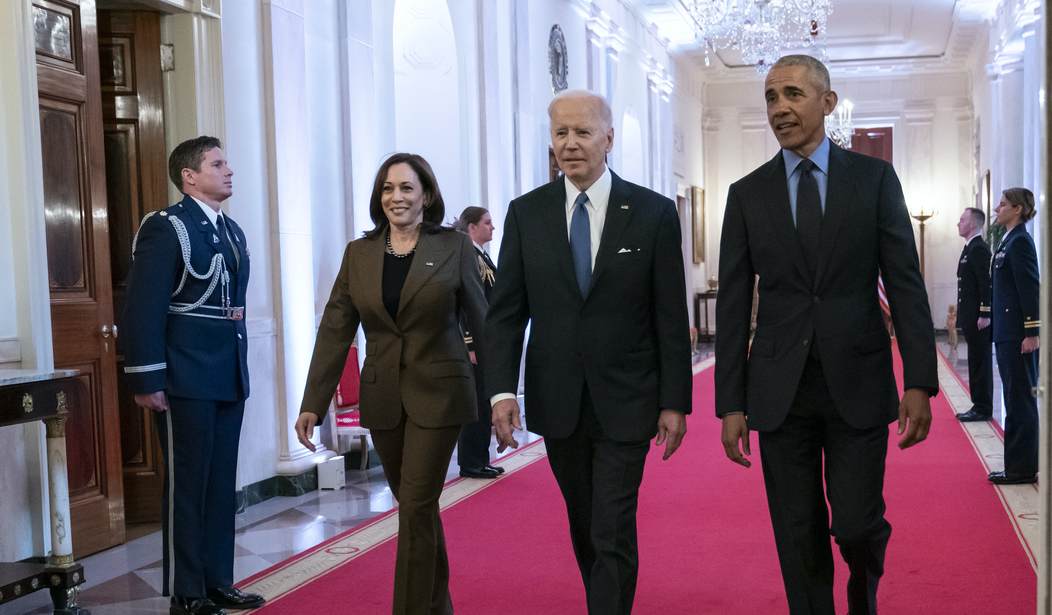A New York Times/Siena College survey published this week shows President Biden and former President Trump are neck-and-neck in a hypothetical matchup, with each receiving 43 percent support. Some conservatives saw this as a sign the incumbent is in “real trouble”—a reality the Times tacitly admitted in one write-up where the author acknowledged those who assume the race will land in Biden’s favor just like it did in 2020 are making a mistake.
Some of the “warning signs” for Biden are his unpopularity and voters’ pessimism about the country’s future. Even 30 percent of respondents who said they did plan to vote for the incumbent hoped another Democrat would be nominated instead.
Now, according to a Washington Post report, former President Obama expressed concerns about 2024 as well.
The 44th president warned President Biden during a private lunch earlier this summer about Trump’s strengths, arguing he is a “more formidable candidate than many Democrats realize,” the Post reports.
Former president Barack Obama, at a private lunch with President Biden earlier this summer, voiced concern about Donald Trump’s political strengths — including an intensely loyal following, a Trump-friendly conservative media ecosystem and a polarized country — underlining his worry that Trump could be a more formidable candidate than many Democrats realize. [...]
Obama was visiting the White House for what Biden aides described as a regular catch-up between the two men who served in the White House together for eight years. During their lunch, Obama made it clear his concerns were not about Biden’s political abilities, but rather a recognition of Trump’s iron grip on the Republican Party, according to the people. (WaPo)
Obama reportedly promised to do all he could to help Biden’s reelection campaign, which was welcome news to the White House.
Recommended
Eric Schultz, a senior adviser to Obama, wouldn’t go on the record about what was discussed during the lunch, but told the Post the former president will find “creative ways to reach new audiences” and utilize “tools that can be directly tied to voter mobilization or volunteer activations.”
“We are deliberate in picking our moments because our objective is to move the needle,” he added.

























